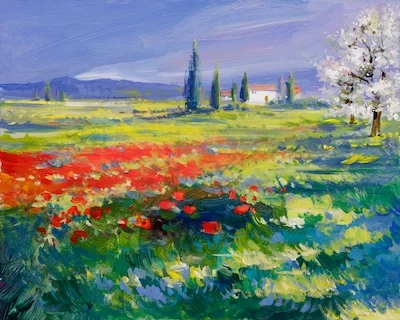DISCLAIMER: This book selection and the contents of the review are the purview of our editor. However if you purchase the book by clicking on the AMAZON link above, we may receive a small commission which helps support Galleries West. You will not pay more.
REVIEW BY BARBARA DUNCAN
Produced to accompany a major touring exhibition by the same name, Woven Histories: Textiles and Modern Abstraction, edited by Lynne Cooke, addresses a long overdue realignment of the role of textiles in relation to modernist and contemporary art and architecture.
The number of distinguished international art venues featuring textiles within their exhibition programs this year provides ample evidence of the long-contested ascendance of textiles within previously prohibitive contexts.
Currently on view at the National Gallery of Art, Washington, DC, the exhibition, Woven Histories, will travel to the National Gallery of Canada later this year where, from Nov. 8, 2024 to Mar. 2, 2025, Canadians will have direct access to the 160 textile works included in this impressive accompanying catalogue.
The book’s introductory essay by Lynne Cooke, who is also the exhibition’s curator, addresses the theme of abstraction as the “quintessential language of modernist art in the aftermath of the First World War,” and further posits that postwar modernism shares its foundational structure of the “grid” with textiles.
Paradoxically, however, and probably due in part to their ubiquity in wide-ranging historical and cultural contexts, textiles are rarely acknowledged as even a subconscious progenitor of modern abstraction.
The exhibition and book, Woven Histories, therefore, seeks to disrupt the genre of abstraction’s canonical and male-dominated evolution with convincing evidence of its nexus with textiles, in practices and industries largely driven by women and Indigenous cultures.
Cooke makes her case by citing the examples of Sophie Taeuber-Arp, Hannah Höch, Sonia Delaunay and others whose work is emblematic of the Dada and Constructivist movements. Nimbly transversing the respective realms of both autonomous artworks and functional items for the home or apparel, these women rejected a hierarchical relegation of textiles to the humble end of the art-craft spectrum.
Within this generation of refreshingly innovative textile artists, Cooke contends the German-American textile visionary Anni Albers invoked a sustained and elevated shift in the role of textiles alongside modern art and architecture. One such example is her semi-transparent woven screens. Albers considered the placement of the screens, along with her use of natural materials, counterbalanced cool modernist expanses with warmth and intimacy.
Albers didn’t just made work that demonstrated new relevance and purpose within the interlocking worlds of art and woven works. She advocated for textiles through presentations and writings that remain touchstones even today for makers, artists and scholars. Her book, On Weaving, remains an authority on aesthetic wisdom and technical detail more than 50 years after publication.
With contributions from other curators, scholars and artists, Woven Histories includes nuanced discussions on textiles and identity politics, textiles and underpaid labour, and the over-production of fashion textiles and their environmental impact. The history of technology and textiles is also explored in relation to both industrial advances and digital applications within art and utilitarian textiles.
If there is one further subject that might have been included, it is that of Indigenous textiles. While there are a few references to Southern and Central American textiles, a contribution on the extraordinary achievements of Indigenous weaving in North America would have been welcome.
Overall, however, Woven Histories is a comprehensive and illuminating collection of scholarly writings that bring new focus to fascinating aspects of textile history. ■
Woven Histories: Textiles and Modern Abstraction, edited by Lynne Cooke, University of Chicago Press, 2023
OTHER ART BOOKS YOU MIGHT HAVE MISSED
PS: Worried you missed something? See previous Galleries West stories here or sign up for our free biweekly newsletter.

